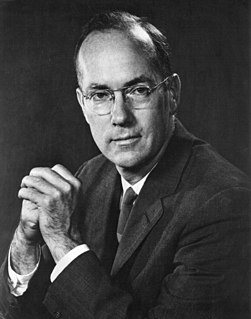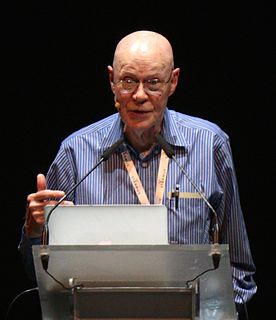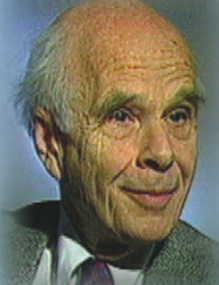A Quote by Stephen Jay Gould
Siphonophores do not convey the message a favorite theme of unthinking romanticism that nature is but one gigantic whole, all its parts intimately connected and interacting in some higher, ineffable harmony. Nature revels in boundaries and distinctions; we inhabit a universe of structure. But since our universe of structure has evolved historically, it must present us with fuzzy boundaries, where one kind of thing grades into another.
Related Quotes
What we call music in our everyday language is only a miniature, which our intelligence has grasped from that music or harmony of the whole universe which is working behind everything, and which is the source and origin of nature. It is because of this that the wise of all ages have considered music to be a sacred art. For in music the seer can see the picture of the whole universe; and the wise can interpret the secret and nature of the working of the whole universe in the realm of music.
Boundaries emerge from deep within. They are connected to letting go of guilt and shame, and to changing our beliefs about what we deserve. As our thinking about this becomes clearer, so will our boundaries. Boundaries are also connected to a Higher Timing than our own. We’ll set a limit when we’re ready, and not a moment before. So will others. There’s something magical about reaching that point of becoming ready to set a limit. We know we mean what we say; others take us seriously too. Things change, not because we’re controlling others, but because we’ve changed.
Whitman expressed the whole universe in his poetry and in his catalogues. That attitude almost defines what we call American romanticism, or American transcendentalism. I feel particularly close to them, because I am now out in the universe. I’m in a position to see nature from another point of view, to be outside the earth and see the big picture.
Science, with its experiments and logic, tries to understand the order or structure of the universe. Religion, with its theological inspiration and reflection, tries to understand the purpose or meaning of the universe. These two are cross-related. Purpose implies structure, and structure ought somehow to be interpretable in terms of purpose.
Radio Astronomy has added greatly to our understanding of the structure and dynamics of the universe. The cosmic microwave background radiation, considered a relic of the explosion at the beginning of the universe some 18 billion years ago, is one of the most powerful aids in determining these features of the universe.
The human mind has a desire to know its place in the universe and the role we play in the tapestry of life. This is actually hardwired into our brains, the desire the know our relationship to the universe. This was good for our evolution, since it enabled us to see our relationship to others and to nature which was good for our survival. And it is also what drives our curiosity to understand the universe.
A language possesses utility only insofar as it can construct conventional boundaries. A language of no boundaries is no language at all, and thus the mystic who tries to speak logically and formally of unity consciousness is doomed to sound very paradoxical or contradictory. The problem is that the structure of any language cannot grasp the nature of unity consciousness, any more than a fork could grasp the ocean.
Spinoza , for example, thought that insight into the essence of reality, into the harmonious structure of the eternal universe, necessarily awakens love for this universe. For him, ethical conduct is entirely determined by such insight into nature, just as our devotion to a person may be determined by insight into his greatness or genius. Fears and petty passions, alien to the great love of the universe, which is logos itself, will vanish, according to Spinoza, once our understanding of reality is deep enough.
A human being is a part of the whole called by us universe, a part limited in time and space. He experiences himself, his thoughts and feeling as something separated from the rest, a kind of optical delusion of his consciousness. This delusion is a kind of prison for us, restricting us to our personal desires and to affection for a few persons nearest to us. Our task must be to free ourselves from this prison by widening our circle of compassion to embrace all living creatures and the whole of nature in its beauty.





































